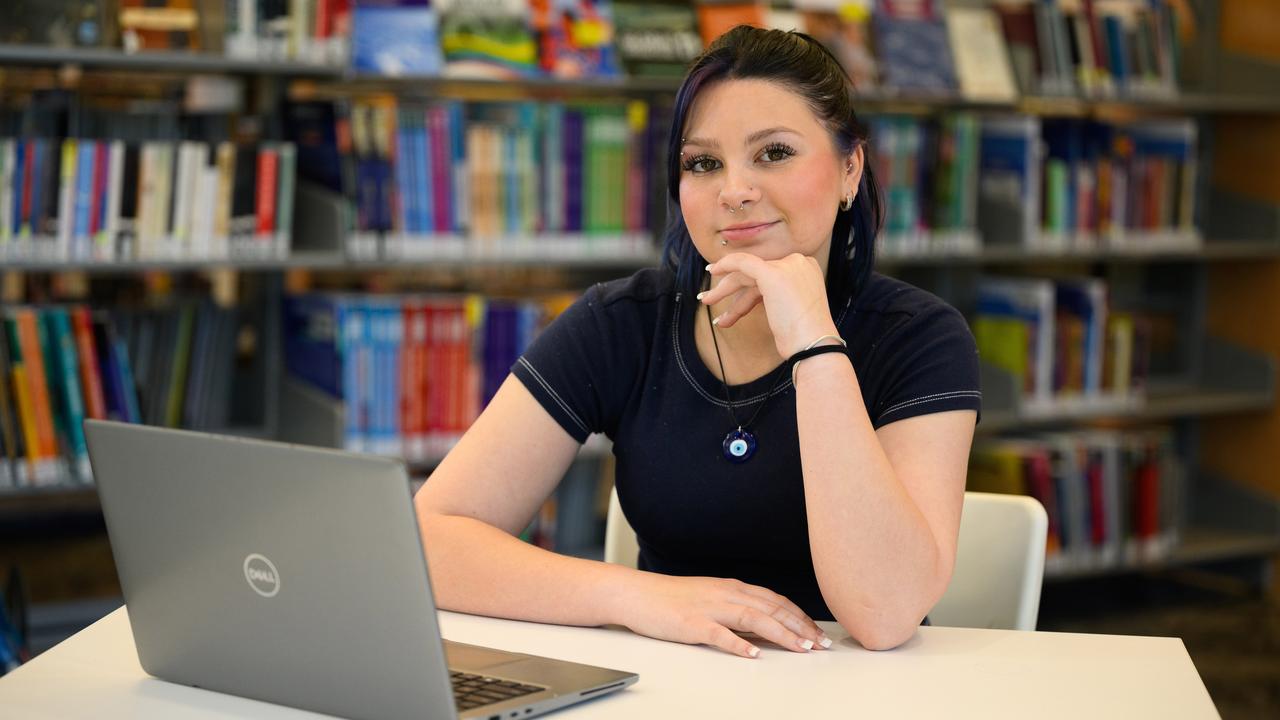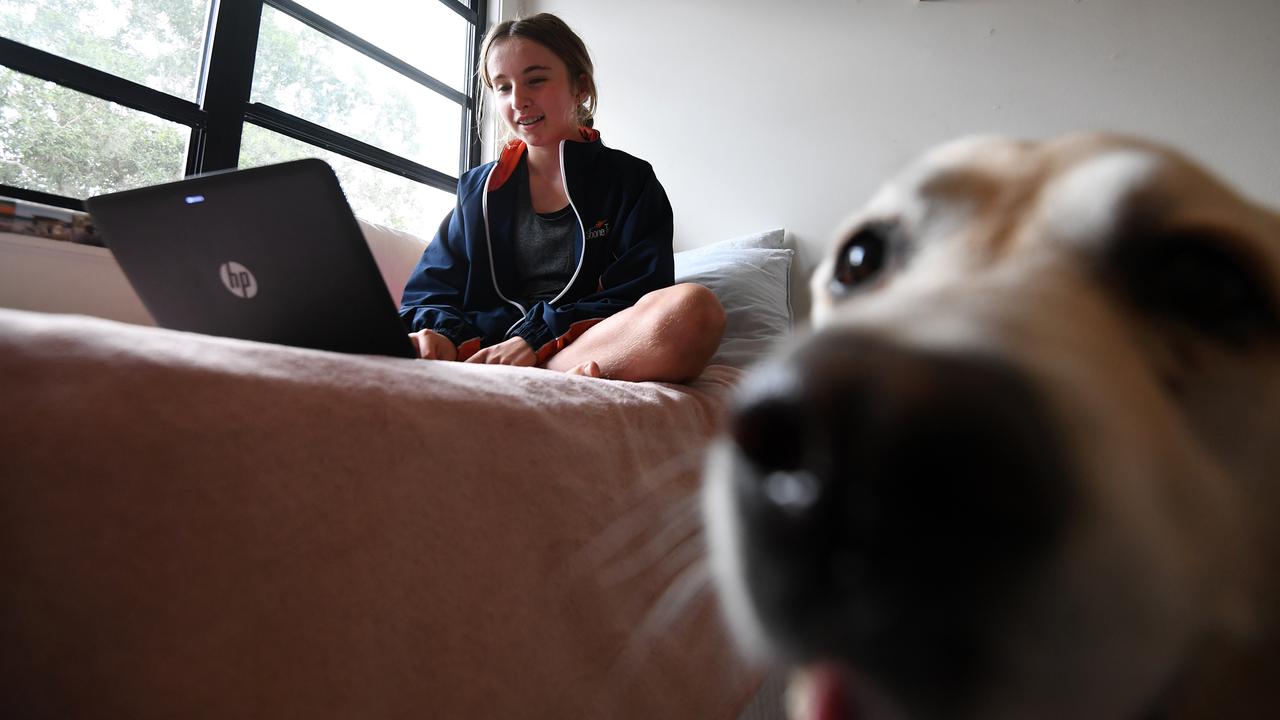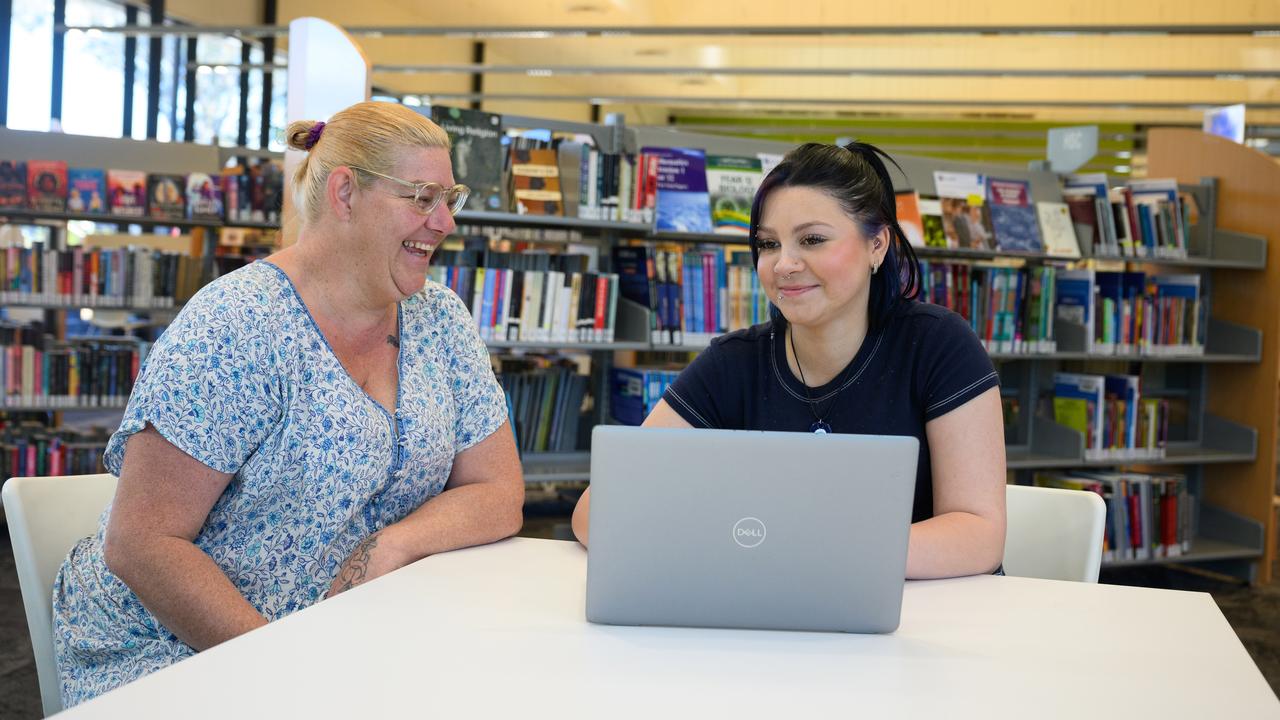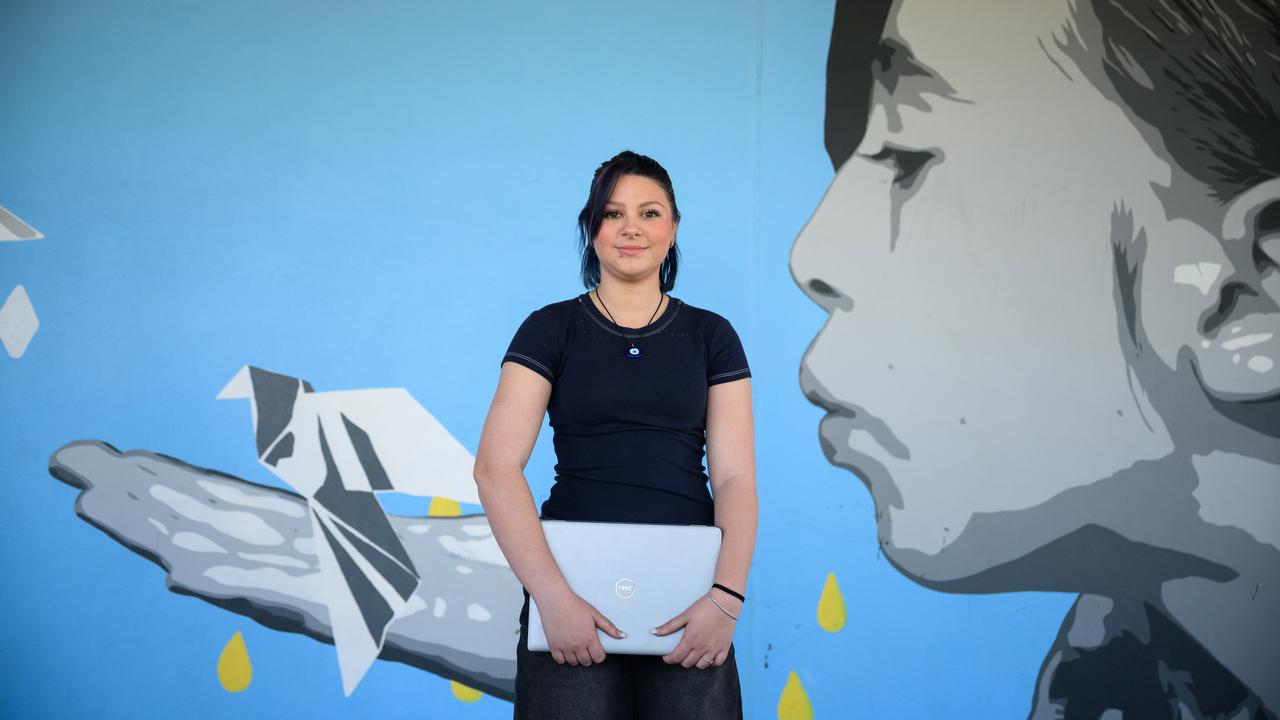For year 10 high school student Skye, Thursday nights used to mean a difficult choice: scouts or homework.
After class homework clinics with access to computers were only held once a week and clashed with her favourite extra curricular activity, leaving her to choose between keeping up with peers or pursuing a pastime she loved.
The rest of the time, she was forced to hunch over her phone to type out assignments.
“I didn’t really have any technology,” says the southwestern Sydney teen.
“It was really hard to do assessments and stuff. On Thursdays, I’d have to stay back after school to use the computers but that was also when I had scouts. It was one or the other.”

Skye’s mum Elaine recalls watching her struggle to keep pace.
“She was trying to keep up but without the access of a computer was finding it difficult,” she says, adding that most assignments need to be submitted online.
“When I was back in high school it was on paper but these days everything is technology and without that she would have had to do it all by hand.
“It just doesn’t work like that anymore.”
Being given a refurbished laptop through The Smith Family’s Learning for Life program, one of 10,000 that have been handed out over the past five years, has been transformative, mother and daughter say.
“She’s actually got two jobs from it as well as keeping up with schoolwork,” Elaine adds.
“She also does scouts and even for that she needs to log her assignments and goals online. Without the laptop, none of it would have been possible.”

Skye agrees the device has eased the pressure.
“It is easier to do assessments,” she says.
“It just makes life a little bit easier, especially when my brothers also need a laptop for their schoolwork.”
The Smith Family chief executive Doug Taylor concurs that computer access is not a privilege but a necessity.
“A digitally-connected laptop is exactly like the pen of yesteryear,” he tells AAP.
“It’s the stationery of education really … without one, young people are being locked out of opportunity.
“They’re forced into big workarounds, going to libraries after hours, sitting in shopping centres for free WiFi.
“It’s increasingly one of those things that’s separating young people out and it’s not something we want to see.”

Mr Taylor says digital exclusion has become “the new frontier of poverty” particularly as artificial intelligence transforms education and job markets.
“The thing that is really going to either accelerate disadvantage or has the potential to level things up is AI,” he says.
“But if young people don’t have access, then they won’t have the same opportunities as their peers in using AI for their education.”
Ever since COVID, The Smith Family has been collaborating with WorkVentures, delivering refurbished laptops to help support students access technology through the National Device Bank.
Having access to the appropriate technology is “no longer a nice-to-have”, says WorkVentures CEO Caroline McDaid.
“It’s essential for education, employment and social connection”.
The simplicity of the scheme is a “no brainer”, according to Mr Taylor.
Forty-four per cent of students supported by The Smith Family, all from low-income backgrounds, lack access to a connected laptop at home. Extrapolated across Australia, the figure represents about 400,000 children.
Meanwhile, two million devices are replaced by governments and businesses every year, most with a lot of life left in them.
“It’s one of those triple bottom line contributions,” says Mr Taylor.
“It’s has great social benefit, good use of corporate resources and obviously potential for a very large social impact.
“It’s a really compelling opportunity for businesses, no question.
“And It’s not just (helping with) doing homework. It’s about building digital skills, which we know are critical for future jobs.”

Ninety-three per cent of parents surveyed by the charity say they’ve seen their child’s learning improve as a result of receiving a laptop.
Elaine believes the case for corporate involvement is simple.
“Please donate to kids that need it more, instead of throwing laptops into landfill,” she urges.
“There are a lot of kids out there who need help, especially when it comes to laptops their parents can’t afford.”
That appeal is at the heart of a new partnership between The Smith Family and the Telstra Foundation.
The latter is donating a total of $3.27 million – $500,000 for five years beginning in 2026, plus a one-off contribution of $770,000 this year.
It has also promised to deliver 1000 laptops this year and an additional 8300 over the next five years. The Smith Family is aiming to deliver a further 21,500 in that same period.

They are also calling for more businesses to follow suit.
“If your company refreshes laptop fleets, you can change a student’s school journey for life,” says CEO Jackie Coates.
“This approach not only helps close the digital divide but also supports environmental sustainability by reducing e-waste and promoting circularity.”
Elaine and Skye asked for their surname to be withheld for privacy reasons.
Australian Associated Press is the beating heart of Australian news. AAP is Australia’s only independent national newswire and has been delivering accurate, reliable and fast news content to the media industry, government and corporate sector for 85 years. We keep Australia informed.





